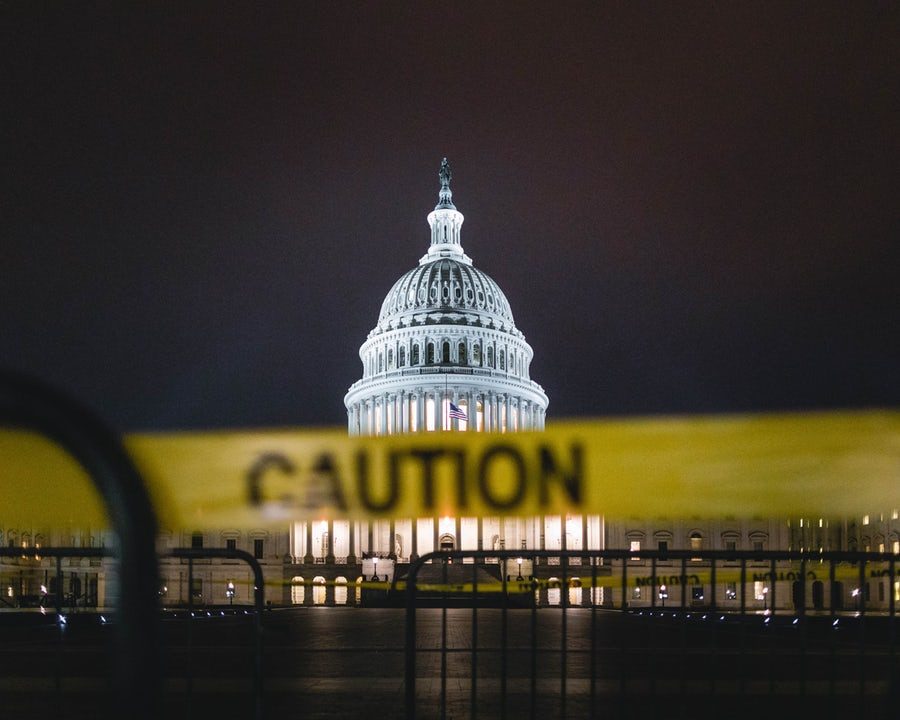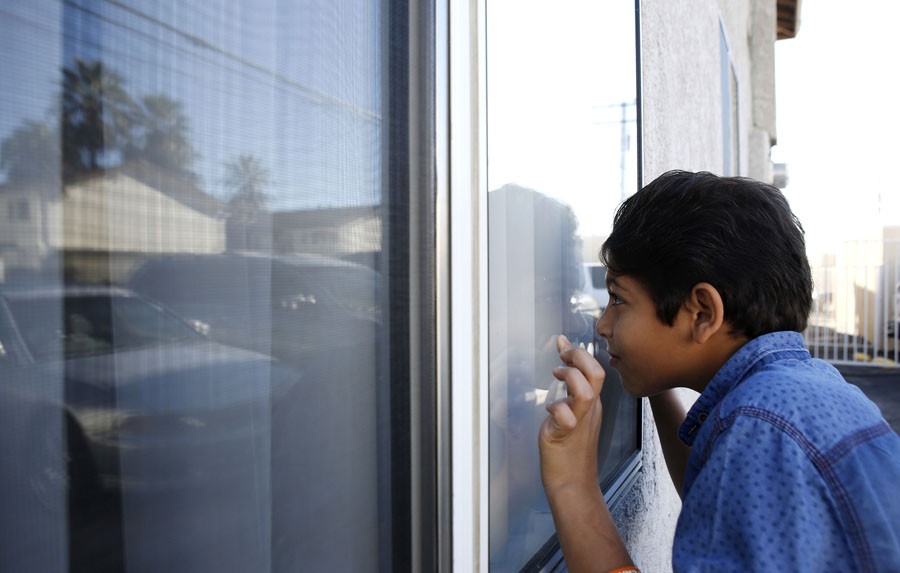State governors refuse to resettle Syrian refugees
Omran Waiweh, 12, looks into his family's new apartment as he tries to get their attention to help unload the truck of donated furniture and start moving into their new place on Nov. 23, 2015 in Pomona, Calif. (Katie Falkenberg/Los Angeles Times/TNS)
January 8, 2016
Governors across the United States have said they will refuse to resettle Syrian refugees in their states in light of the recent terrorist attack in Paris, due to “security concerns”. However, a U.S. District Judge has declined Texas officials’ request for a temporary restraining order that would bar more refugees from settling in Texas, as the state “failed to show by competent evidence that any terrorists actually have infiltrated the refugee program, much less that these particular refugees are terrorists intent on causing harm.”
Millions of Syrian citizens have left their country in the past five years as a result of the civil war currently raging across all of Syria. These people most commonly escape to nearby Jordan and Lebanon, but refugee camps there are extremely overcrowded, and, as a result, the United States and several European countries have said they will accept a certain number of refugees each.
The recent terrorist attack in Paris has complicated the issue of the refugees, as many governors and other state officials now do not want to resettle them in their state or country due to suspicion that they may be terrorists or members of ISIS. However, U.S. District Judge David Godbey dismissed the statement that “terrorists could have infiltrated the Syrian refugees and could commit acts of terrorism in Texas as “largely speculative heresy.”
The first twenty-six states that refused to accept Syrian refugees were Alabama, Arizona, Arkansas, Florida, Georgia, Idaho, Illinois, Indiana, Iowa, Kansas, Louisiana, Maine, Maryland, Massachusetts, Michigan, Mississippi, Nebraska, Nevada, New Jersey, North Carolina, Ohio, South Carolina, Tennessee, Texas, Wisconsin and Wyoming.
Rick Snyder of Michigan, Robert Bentley of Alabama, Greg Abbott of Texas, and Asa Hutchison of Arkansas are the governors of the first states to deny the Syrian refugees. Each of these governors said in separate statements that their states would not be allowing the relocation of refugees from Syria until they are fully cleared by the U.S. Department of Security.
“Michigan is a welcoming state and we are proud of our rich history of immigration. But our first priority is protecting the safety of our residents,” Snyder said.
Georgia Governor Nathan Deal said that Georgia will not accept Syrian refugees “until the federal government and Congress conducts a thorough review of current screening procedures and background checks.”
Ultimately, the federal government has the ultimate say in where and how many refugees will be settled. As a result, Senator Ted Cruz and Governor Greg Abbott proposed the State Refugee Security Act, which would require federal officials to notify states 21 days before resettling any families and would prohibit resettlement if they fail to assure governors the refugees do not pose a risk.
“The threats to America’s security are difficult to assess,” Abbott said, “That is why Texas and other states are doing even more to ensure that we safeguard the security of our citizens.”
Texas has taken in 250 Syrian refugees in the past five years, more than any other state except for California. Two families of six each were settled in Dallas and Houston the week of December 7, with twenty-one more expected to arrive in the same week.
“The refugee families on their way here can be resettled without delay,” said Rebecca L. Robertson, legal and policy director for the American Civil Liberties Union of Texas. “We are pleased that the court refused to let the state of Texas interfere with humanitarian aid to people fleeing war and violence.”

















